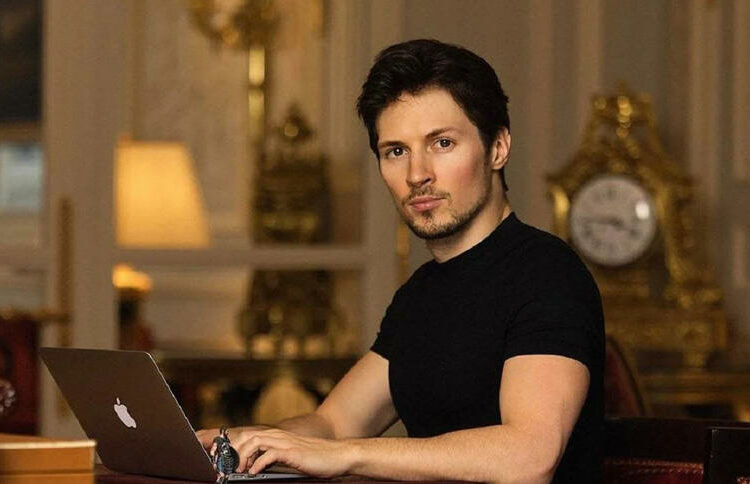The founder of Telegram, Pavel Durov, has been released from the police custody for formal investigation to commence on allegations against him in France, Paris prosecutors said on Wednesday.
The 39-year-old Russian-born entrepreneur, who also holds French nationality, has been released from custody but is under judicial supervision.
He is also required to pay a €5 million deposit, report to a French police station twice a week, and is prohibited from leaving France.
LEADERSHIP earlier reported that Durov was detained at Le Bourget airport near Paris last Saturday under a warrant related to alleged criminal activities on Telegram.
Telegram’s CEO Pavel Durov Arrested Over Alleged Drug Trafficking, Others In France
Durov will be formally interrogated over accusations bordering on complicity in enabling illicit transactions by organised crime gangs and refusal to cooperate with authorities.
Telegram is accused of refusing to share crucial information with investigators and involvement in distributing child sexual abuse material.
The Paris prosecutor’s office stated, “An investigating judge has ended Pavel Durov’s police custody and will have him brought to court for a first appearance and a possible indictment.”
Paris Prosecutor Laure Beccuau confirmed that Durov had been ordered to pay the substantial bail amount and must adhere to regular check-ins with local authorities.
Beccuau added that Telegram has been implicated in multiple criminal cases in France, including those related to child sexual abuse, drug trafficking, and online hate crimes.
The platform, according to the prosecutor, has demonstrated a “near-total absence” of cooperation with prosecutors, leading authorities in France and other European countries to scrutinise the potential criminal liability of its executives.
“Prosecutors around France, as well as legal authorities in Belgium and other European countries, have shared the same observation,” Beccuau said.
In France, complex criminal cases such as this one are handled by special judges who have broad investigative powers. These judges can charge defendants when the evidence suggests serious wrongdoing but may also drop charges if the evidence is deemed insufficient.
As a result, a swift resolution of Durov’s case is unlikely and if convicted, Durov could face up to 10 years in prison.
LEADERSHIP reported that Durov’s arrest has stirred controversy internationally.
In Russia, some officials have decried it as politically motivated and a reflection of Western double standards on freedom of speech.
This sentiment echoes Russia’s failed attempt in 2018 to block Telegram, a ban that was lifted in 2020. Conversely, Iran, where Telegram is banned but widely used, saw the arrest as a sign of France’s strict stance against internet governance violations.
French President Emmanuel Macron however, emphasised that Durov’s arrest is part of an independent investigation and not a political plot.
Macron stated on X, “Our country is deeply committed to freedom of expression but freedoms are upheld within a legal framework to protect citizens and their fundamental rights.”
In response, Telegram released a statement asserting its compliance with EU laws and industry standards. The platform argued, “It is absurd to claim that a platform or its owner are responsible for abuse of that platform. Almost a billion users globally use Telegram as a means of communication and a source of vital information. We’re awaiting a prompt resolution of this situation.”
The UAE Foreign Ministry said it is monitoring the case closely, requesting France to provide Durov with necessary consular services.
For its part, Kremlin spokesperson Dmitry Peskov expressed hope that Durov receives adequate legal defense and noted Russia’s readiness to offer support, despite the complexities arising from the Telegram CEO’s French citizenship.
Telegram, which Durov co-founded after leaving VKontakte, a site he sold in 2013 due to pressure from Russian authorities, has been a significant platform for both pro-democracy activists and news dissemination in Ukraine.
The platform’s lack of content moderation has led to criticisms and legal actions, including a $5 million fine from Germany in 2022 for failing to comply with regulations on illegal content reporting.











